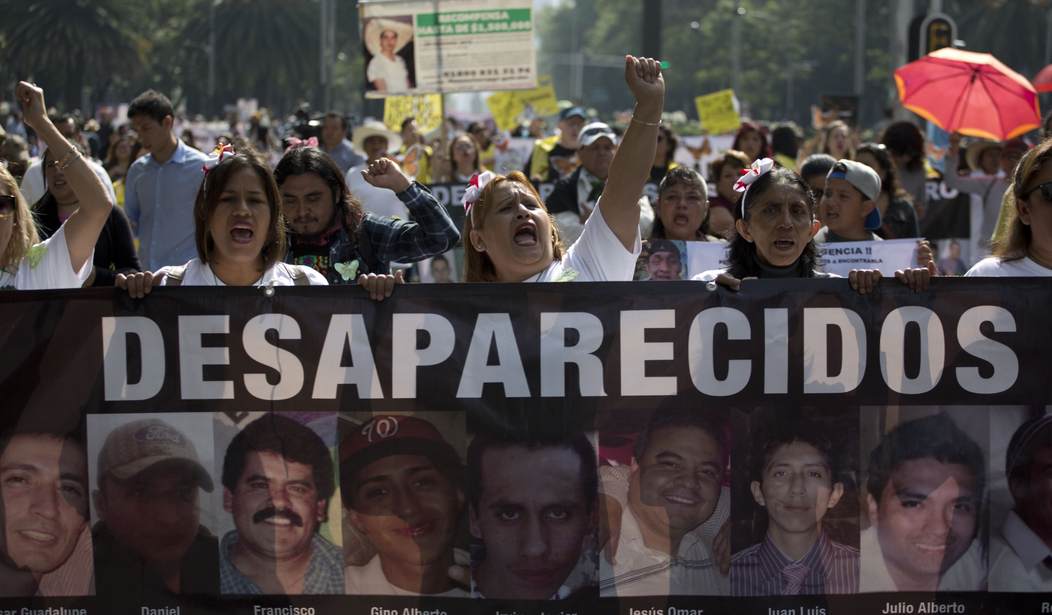The State Department under new chief Marco Rubio — himself just back from providing a humiliating history lesson to CBS News's Margaret Brennan — today slapped the Foreign Terrorist Organization (FTO) label on no fewer than eight Latin American gangs and drug cartels.
The new FTOs include Tren de Aragua, Mara Salvatrucha, Cartel de Sinaloa, Cartel de Jalisco Nueva Generacion, Carteles Unidos, Cartel del Noreste, Cartel del Golfo, and La Nueva Familia Michoacana. Those groups now find themselves in the same legal company as al Qaeda, ISIS, Hamas, and Boko Haram.
So what does that mean in practice?
The short version is: "Nobody knows." Those Islamic terrorist groups are still in business. Al Qaeda joined the list in 1999, yet still managed to pull off the terror attacks of 9/11/2001 and survived two decades of war in Afghanistan and global manhunts, albeit in diminished form.
Despite having "Terrorism" right there in the title, an FTO designation does not automatically make it legal to shoot or blow up members of an FTO, which seems to be what everybody is talking about on X today.
"I think the average American is GREATLY underestimating what it will take to 'take out the cartels,'" Jesse Kelly warned, just hours before State announced the FTOs. "This will not be Sicario 2. This will be Vietnam."
"Not saying it’s wrong to try. But don’t blow that off as some tiny thing."
Indeed. It's been a little over a century since we last indulged in military operations in northern Mexico, and Gen. John Pershing's 1916–1917 Punitive Expedition against Pancho Villa didn't accomplish much.
John Cardillo replied with a bit more optimism:
Yeah, but they’ve never gone up against an uncompromised adversary.
— John Cardillo (@johncardillo) February 18, 2025
Not that I’m saying some drone strikes and air strikes are going to win this thing, but the Mexican military is also severely compromised. As are the federales. State and local cops work exclusively for the…
More:
State and local cops work exclusively for the cartels. The cartels have a robust intelligence network, but they’ve never gone head to head with the United States.
It won’t be easy, but we also shouldn’t overestimate their capabilities. Many of their soldiers are low IQ thugs without any real training.
El Chapo was long thought to be invincible until the United States really wanted him. Once we did, we got him.
But going to actual war against the cartels could prove to be a game of whack-a-mole, with "Too much cash to be made, [and] always someone ready to step in," as Buck Sexton noted. I'd add that drug money tends to corrupt even those trying to fight it — something that you'd hate to see happen (again!) to the U.S. military.
The longer version is that the FTO designation carries with it a range of legal options that we can take a look at.
First come the financial sanctions, making it illegal for Americans or American businesses or NGOs to provide any kind of material support. And any assets held in U.S. banks are now frozen. For obvious reasons, drug running is a cash-intensive business already. By the time cartel money hits American banks, I assume it's been laundered cleaner than a Hillary Clinton email server.
There are also enhanced federal criminal penalties — up to 20 years in prison — for anyone providing support to an FTO.
Then, there are immigration restrictions. Members or representatives of FTOs are barred entry, and even those already here are subject to deportation. That's already in line with President Donald Trump's effort to restore some semblance of order to our southern border and execute mass deportations of illegals, so, again, the FTO doesn't seem to do anything we aren't already doing.
Mostly, then, what the FTO seems to mean against the cartels is additional legal scrutiny — and that's no small thing. The most famous example is Al Capone, convicted of tax evasion but never of bootlegging, murder, or any of his other extracurricular activities. We also have Trump as POTUS, who's more than willing to twist arms in Mexico City if that's what it takes to get some help on their side of the border. I'd also take a good, hard look at where the drug money goes in Mexico and sanction accordingly.
I'm not opposed, at least in theory, to using military force against the cartels. That said, even if military action didn't prove to be as bloody and difficult as Kelly fears, it might end up even more frustrating than Sexton imagines.
It might be smarter, then, to stick with the FTO designations' broader legal powers against the cartels and keep our powder dry for the Chinese.
Recommended: TORONTO CRASH: Is 'Live Fast, Die Young' REALLY the Attitude You Want in Your Aircrew?










Join the conversation as a VIP Member